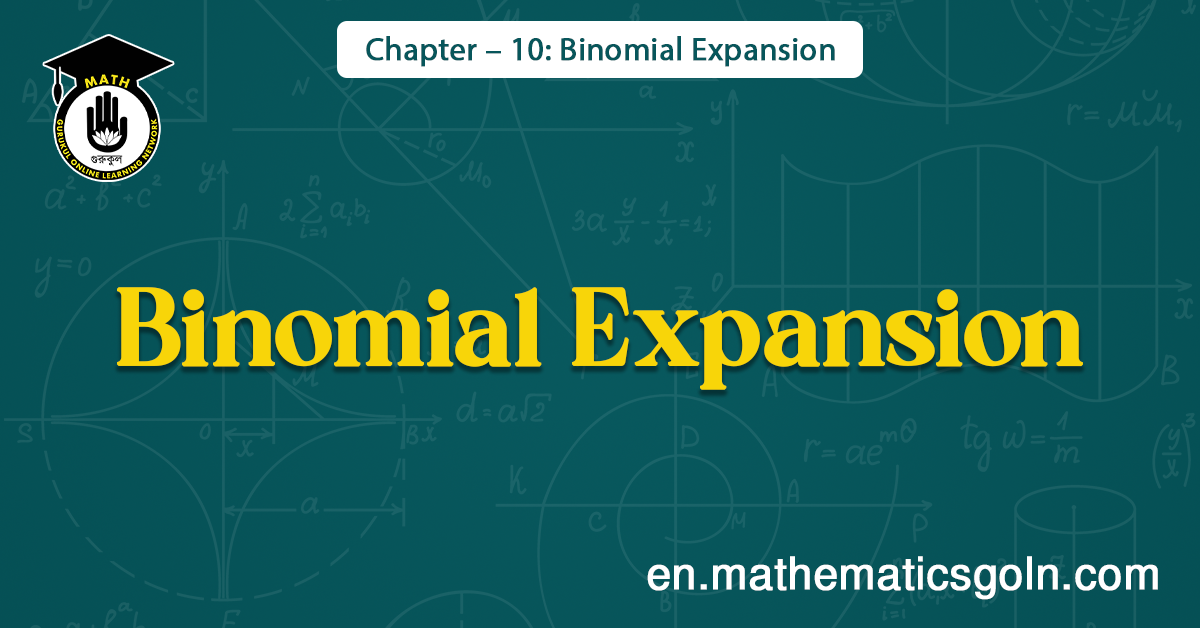Today is our topic of discussion Concept of Binomial Expansion .
Concept of Binomial Expansion

In our previous classes, addition, subtraction, multiplication, division, square and cube related algebraic expressions (single term, binomial and polynomial) had been discussed. When the power of a binomial or a polynomial expression is more than three, determining the value of such expression is labourious and time consuming. In this chapter, the working method will be presented in case of power being more than three.
Generally, formula will be demonstrated for the power of n, by which the value of binomial expression of non negative integer of power will be possible to determine. But at this stage the value of n will not exceed a definite limit (n ≤ 8).
A triangle will be introduced called Pascal’s Triangle so that students can easily understand and use the subject matter. The power of binomial expression may be a positive or negative integer or fraction. But our present discussion will be limited to only positive integer of power. In higher classes detailed discussion will be included. After completing this chapter, the students will be able to-
- describe the binomial expression;
- describe the Pascal’s triangle;
- describe the binomial expression for general power;
- find the value of n! and “Cr;
- solve mathematical problems using binomial expression.

Binomial Expansion of (1+ y)n
An algebraic expression consisting of two terms is called a binomial-expression. a+b, x−y, 1+x, 1-x², a²-b² etc are binomial-expressions. We first consider a binomial expression of (1+ y). Now we multiply (1+ y) by (1+ y) successively then we get (1+ y)², (1+y)³, (1+ y)4, (1+ y)5, … etc. We know,
(1+ y)² = (1+ y)(1 + y) = 1 + 2y + y²
(1 + y)³ = (1 + y)(1 + y)² = (1 + y)(1 + 2y + y²) = 1 + 3y + 3y² + y³
Similarly it is possible to determine the value of (1+ y)4, (1+y)5,… etc by the process of lengthy multiplication. But it will be lengthy and time consuming if the powers of (1+ y) is increasing. So it will be better to find out a method to easily determine the expansion of (1+ y)n for any powers (say n) of (1+ y). For n = 0, 1, 2, 3, 4, i.e., for non negative values of n, our discussion is limited in this context. Now we carefully observe the procedure.

On the basis of the above expressions, we come to the decision of the expansion of (1+ y)^n.
1) In the expansion of (1+ y)” the number of term is (n+1) i.e. number of terms is greater than power.
2) The power of y is increasing from zero to 1, 2, 3,…,n i.e. power of y is increasing orderly up to n.
